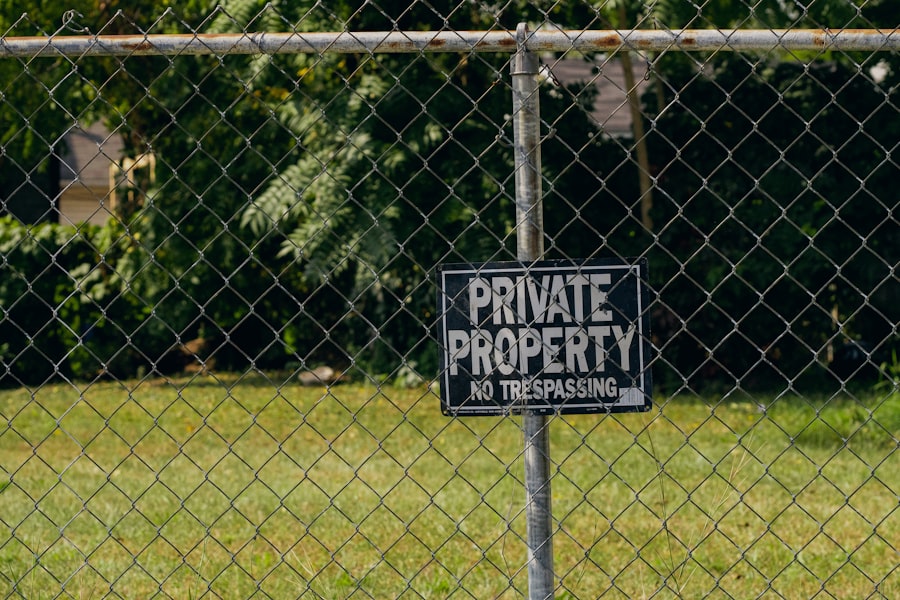In recent years, I have observed a troubling trend in the real estate market: the rise of real estate fraud. As the housing market has experienced fluctuations, with prices soaring in many areas, the potential for fraudulent activities has increased significantly. Unscrupulous individuals and organizations have taken advantage of the complexities of real estate transactions, exploiting the lack of knowledge among buyers and sellers.
This surge in fraudulent activities has not only affected individual victims but has also cast a shadow over the entire real estate industry, eroding trust and confidence. The digital age has further exacerbated this issue. With the proliferation of online listings and virtual tours, it has become easier for fraudsters to create convincing but false representations of properties.
I have seen how these deceptive practices can lure unsuspecting buyers into making hasty decisions, often leading to devastating financial consequences. As I delve deeper into this topic, I realize that understanding the various forms of real estate fraud and how to protect oneself is more crucial than ever.
Key Takeaways
- Real estate fraud is on the rise, posing a significant threat to individuals and the industry as a whole.
- Common types of real estate fraud include mortgage fraud, title fraud, and foreclosure fraud.
- Spotting real estate fraud involves being vigilant about red flags such as unreasonably low prices, pressure to act quickly, and discrepancies in documentation.
- Real estate fraud can have a devastating impact on victims, leading to financial loss, emotional distress, and damage to credit.
- Technology plays a significant role in real estate fraud, with scammers using sophisticated methods to deceive and defraud individuals.
Common Types of Real Estate Fraud
As I explore the landscape of real estate fraud, I find that several common types emerge, each with its own unique characteristics and methods of operation. One prevalent form is mortgage fraud, where individuals provide false information to secure a loan or manipulate property values. This can involve inflating income or assets, which ultimately leads to financial institutions approving loans that should never have been granted.
I have come across numerous cases where buyers unknowingly became entangled in these schemes, only to face dire consequences when the truth came to light. Another alarming type of fraud is rental scams, which often target unsuspecting tenants looking for affordable housing. In these cases, fraudsters post fake rental listings online, often using stolen images and enticing descriptions to attract potential renters.
I have witnessed firsthand how these scams can lead to individuals losing their hard-earned money, as they pay deposits for properties that do not exist or are not actually available for rent. The emotional toll on victims can be just as significant as the financial loss, leaving them feeling vulnerable and betrayed.
How to Spot Real Estate Fraud

Recognizing the signs of real estate fraud is essential for anyone involved in a property transaction. I have learned that there are several red flags to watch out for that can indicate something is amiss. One of the most significant warning signs is an offer that seems too good to be true.
If a property is priced significantly lower than comparable homes in the area, it may be worth investigating further. I have found that conducting thorough research on property values and trends can help me identify potential scams before they become costly mistakes. Another critical aspect of spotting real estate fraud is scrutinizing the documentation involved in a transaction.
I have come to understand that legitimate transactions will always have clear and verifiable paperwork. If I encounter vague contracts or documents that lack essential details, it raises a red flag.
The Impact of Real Estate Fraud on Victims
| Impact of Real Estate Fraud on Victims |
|---|
| Financial Loss |
| Emotional Distress |
| Legal Complications |
| Damage to Credit Score |
| Loss of Property Ownership |
The impact of real estate fraud on victims can be profound and far-reaching. I have seen how individuals who fall prey to these scams often experience significant financial losses, sometimes losing their life savings or facing foreclosure on their homes. The emotional toll can be equally devastating; victims frequently report feelings of shame, anger, and betrayal.
It is heartbreaking to witness how these experiences can lead to long-lasting psychological effects, including anxiety and depression. Moreover, the ripple effects of real estate fraud extend beyond individual victims. Communities can suffer when trust in the housing market erodes due to fraudulent activities.
I have observed how neighborhoods can decline as property values plummet and legitimate buyers become wary of investing in areas plagued by scams. This cycle can create a challenging environment for everyone involved, making it crucial for us to work together to combat real estate fraud and protect our communities.
Case Studies of Real Estate Fraud
Examining specific case studies of real estate fraud has provided me with valuable insights into the tactics employed by fraudsters and the consequences faced by victims. One notable case involved a group of individuals who orchestrated a scheme to sell properties they did not own. They created fake listings and forged documents to convince buyers that they were legitimate sellers.
Many unsuspecting buyers were drawn in by attractive prices and ended up losing their deposits when the truth was revealed. This case highlighted the importance of verifying ownership and conducting due diligence before making any financial commitments. Another case that caught my attention involved a fraudulent mortgage broker who manipulated loan applications for multiple clients.
By inflating income figures and falsifying employment records, this broker secured loans for clients who would not have qualified otherwise. When the housing market crashed, many of these clients found themselves unable to make payments, leading to widespread foreclosures and financial ruin. This case underscored the need for transparency and accountability within the mortgage industry, as well as the importance of educating consumers about their rights and responsibilities.
The Role of Technology in Real Estate Fraud

As technology continues to evolve, so too do the methods employed by fraudsters in the real estate sector. I have noticed that while technology can enhance transparency and efficiency in transactions, it also provides new avenues for deception. For instance, cybercriminals often use sophisticated techniques to hack into email accounts or create fake websites that mimic legitimate real estate agencies.
This allows them to intercept sensitive information or trick unsuspecting buyers into providing personal details. On the flip side, technology also offers tools that can help combat real estate fraud. I have come across various platforms that provide property verification services, allowing buyers to confirm ownership and check for any liens or encumbrances on a property before proceeding with a transaction.
Additionally, advancements in blockchain technology hold promise for creating secure and transparent property records, potentially reducing opportunities for fraud in the future.
Steps to Take if You Suspect Real Estate Fraud
If I ever find myself suspecting real estate fraud, there are several steps I can take to protect myself and address the situation effectively. First and foremost, I would gather all relevant documentation related to the transaction in question. This includes contracts, emails, and any correspondence with agents or brokers involved.
Having a comprehensive record will be invaluable if I need to report the fraud or seek legal recourse. Next, I would reach out to local authorities or consumer protection agencies to report my suspicions. Many jurisdictions have dedicated resources for addressing real estate fraud, and they can provide guidance on how to proceed.
Additionally, I would consider consulting with a legal professional who specializes in real estate law to understand my rights and options moving forward. Taking swift action can help mitigate potential losses and prevent others from falling victim to similar scams.
Legal Consequences of Real Estate Fraud
The legal consequences of real estate fraud can be severe for those found guilty of perpetrating such schemes. I have learned that individuals convicted of real estate fraud may face criminal charges ranging from misdemeanors to felonies, depending on the severity of their actions. Penalties can include hefty fines, restitution payments to victims, and even imprisonment in some cases.
These legal repercussions serve as a deterrent for potential fraudsters but also highlight the importance of holding individuals accountable for their actions. Moreover, victims of real estate fraud may have legal recourse available to them as well. Depending on the circumstances surrounding their case, they may be able to pursue civil lawsuits against those responsible for their losses.
I have seen how successful litigation can provide some measure of justice for victims while also sending a message that fraudulent activities will not be tolerated within the real estate industry.
How to Protect Yourself from Real Estate Fraud
Protecting myself from real estate fraud requires vigilance and proactive measures throughout any property transaction process. One of the most effective strategies I have adopted is conducting thorough research before engaging in any deal. This includes verifying the credentials of agents or brokers involved in the transaction and checking their reputations through online reviews or professional organizations.
Additionally, I make it a point to educate myself about common scams and red flags associated with real estate transactions. By staying informed about current trends in fraud tactics, I feel more empowered to recognize potential threats early on. Furthermore, I always ensure that any financial transactions are conducted through secure channels and avoid sharing sensitive information via email or unsecured platforms.
Resources for Reporting Real Estate Fraud
When it comes to reporting real estate fraud, there are several resources available that can assist me in taking action against fraudulent activities.
Additionally, consumer protection agencies at both state and federal levels provide avenues for reporting scams and seeking assistance.
I have also discovered that organizations such as the Better Business Bureau (BBB) offer resources for consumers who suspect fraudulent activities within their communities. These organizations can help facilitate investigations and provide guidance on how to navigate the reporting process effectively.
The Future of Real Estate Fraud Prevention
Looking ahead, I am hopeful that advancements in technology and increased awareness will contribute significantly to preventing real estate fraud in the future. As more individuals become educated about common scams and red flags associated with property transactions, we may see a decline in successful fraudulent activities. Moreover, ongoing collaboration between industry professionals, law enforcement agencies, and consumer advocacy groups will be essential in creating a robust framework for combating real estate fraud.
By sharing information and resources, we can work together to protect ourselves and our communities from these deceptive practices while fostering a safer environment for all participants in the real estate market. In conclusion, navigating the complexities of real estate transactions requires vigilance and awareness of potential fraudulent activities. By understanding the various forms of fraud, recognizing warning signs, and taking proactive measures to protect ourselves, we can contribute to a safer real estate landscape for everyone involved.
In recent years, real estate fraud has become an increasingly concerning issue, with many individuals falling victim to deceptive practices. A related article that delves into the intricacies of such fraudulent activities can be found on the website “Am I Wrong Here.” This article provides insights into common scams and offers advice on how to protect oneself from becoming a victim. For more detailed information, you can read the full article by visiting this link. The piece not only highlights real-life cases but also discusses the legal implications and preventive measures that can be taken to safeguard one’s investments in the real estate market.
✅WATCH NOW! My Mother-in-Law’s Real Estate Heist Collapses Spectacularly
FAQs
What is real estate fraud?
Real estate fraud refers to any illegal activity that involves the buying, selling, or renting of property. This can include misrepresentation of property details, forging documents, or using deceptive tactics to obtain money or property.
What are some common types of real estate fraud?
Common types of real estate fraud include mortgage fraud, foreclosure rescue scams, rental scams, and property flipping schemes. These can involve individuals or organized groups attempting to deceive buyers, sellers, or renters for financial gain.
How can I protect myself from real estate fraud?
To protect yourself from real estate fraud, it’s important to thoroughly research any property or deal before making a commitment. This can include verifying the legitimacy of the seller or landlord, reviewing all documents carefully, and seeking legal advice if necessary.
What should I do if I suspect real estate fraud?
If you suspect real estate fraud, you should report it to the appropriate authorities, such as the local police department, the Federal Trade Commission (FTC), or the Consumer Financial Protection Bureau (CFPB). It’s important to gather any evidence you have and provide as much detail as possible when making a report.
What are the potential consequences of real estate fraud?
The consequences of real estate fraud can be severe, including financial loss, legal penalties, and damage to one’s reputation. Perpetrators of real estate fraud can face criminal charges and civil lawsuits, and may be required to pay restitution to their victims.




